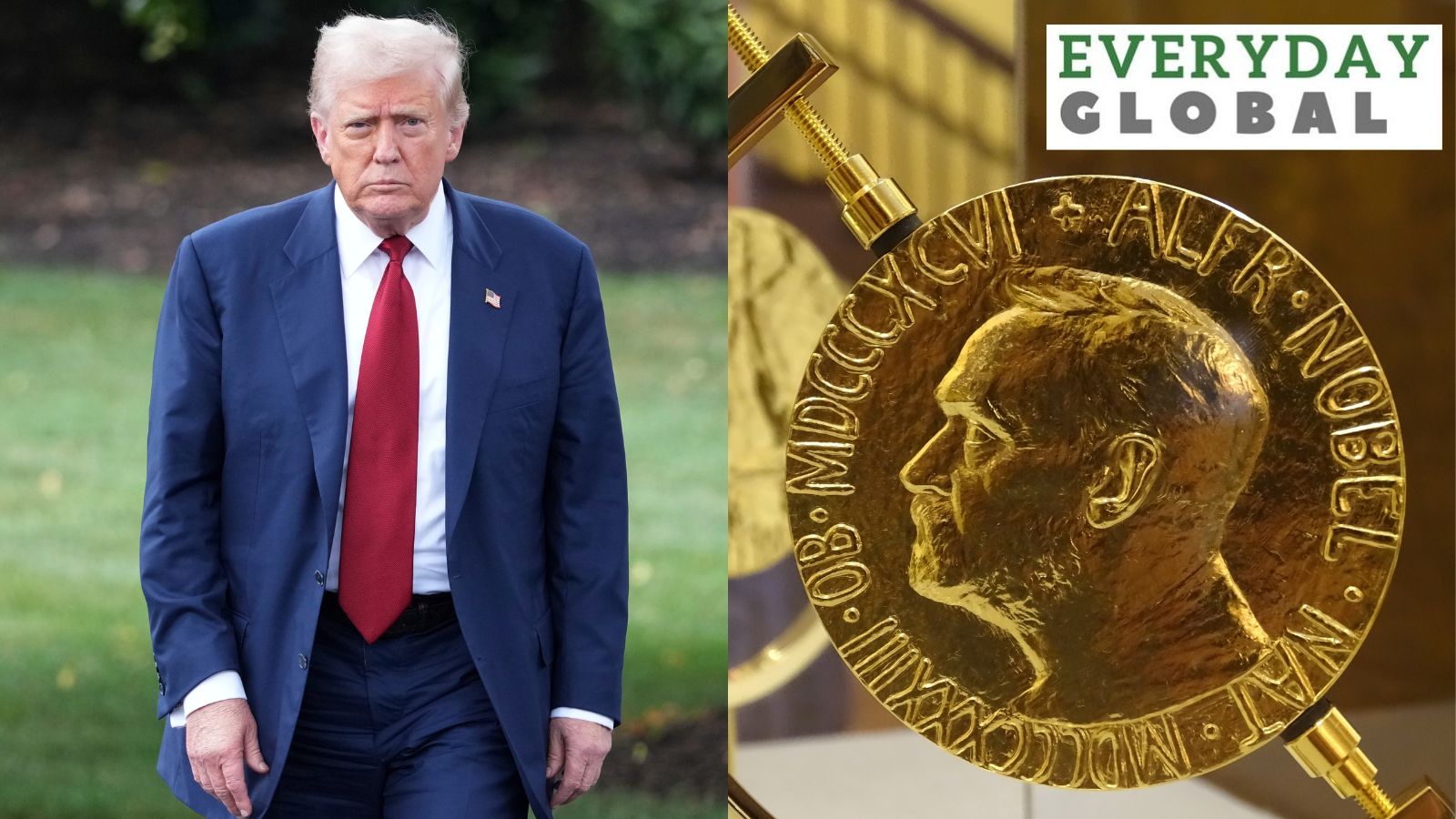After Pakistan and Israel, Cambodia offers Nobel nomination to Trump: How does it work?
Trump has frequently lamented about not being awarded the prize, and world leaders hoping to develop a deeper relationship with the United States have picked up on the concern.
 Four US Presidents have previously won the Nobel Peace Prize. Jimmy Carter's 2002 prize is on display at his Visitor Centre in Georgia. (AP/Wikimedia Commons)
Four US Presidents have previously won the Nobel Peace Prize. Jimmy Carter's 2002 prize is on display at his Visitor Centre in Georgia. (AP/Wikimedia Commons)Claiming that US President Donald Trump had “ended conflicts”, including those between India and Pakistan, and Thailand and Cambodia, White House Press Secretary Karoline Leavitt has said it was “well past time” that he was awarded the Nobel Peace Prize.
During a press briefing on Thursday (July 31), Leavitt said Trump brokered, on average, about one peace deal or ceasefire per month during his six months in office since January. This is not the first time that Trump supporters have made such calls, even as his track record is debatable, at best. For one, New Delhi has countered his repeated claims of mediation.
US President Donald Trump posts, “… I won’t get a Nobel Peace Prize for this (Treaty between the Democratic Republic of the Congo, and the Republic of Rwanda), I won’t get a Nobel Peace Prize for stopping the War between India and Pakistan, I won’t get a Nobel Peace Prize for… pic.twitter.com/vboXwZXjXf
— ANI (@ANI) June 20, 2025
Still, that has not stopped the likes of Israeli Prime Minister Benjamin Netanyahu, and the governments of Pakistan and Cambodia, from saying they would nominate him. In early July, Netanyahu met Trump and handed him a copy of the letter which he had sent to the Norwegian Nobel Committee.
The government of Pakistan also said it had nominated him, praising his “pivotal leadership” during the conflict with India following the Pahalgam attacks and Operation Sindoor. Cambodia’s Deputy Prime Minister also announced his country’s plans to do so, after a recent conflict with Thailand.
So, how exactly does a country actually nominate another world leader for the prize, whose previous nominees include Mahatma Gandhi and, briefly, Adolf Hitler? Is there an eligibility criterion? And would it be unusual for a US President to win the honour?
Could a nation nominate Trump for the Nobel Peace Prize?
Theoretically, yes, depending on the outcomes of the nomination process.
The first stage for any category of the Nobel Prize involves nominations. A range of people — university professors, former Nobel winners in that category, etc. — are deemed eligible by the respective Nobel Committee to submit a nomination for that award. The Norwegian Nobel Committee, which is responsible for awarding the Peace Prize, consists of five individuals appointed by the Norwegian parliament, who are often politicians.
Heads of state and members of national assemblies and national governments can send nominations for the Peace Prize. The nominations are sifted through to make a list of valid nominations. For instance, Swedish Parliamentarian and Social Democrat, Erik Brandt, sent a letter to the Norwegian Nobel Committee, nominating Adolf Hitler for the Nobel Peace Prize in 1939. However, it was meant to be ironic and eventually withdrawn.
The Nobel committee then creates a shortlist, external consultants research those candidates, and the committee finally makes its choice after discussions. The entire process takes eight months, and the full list of nominees is made public 50 years after the submission.
Can anyone be nominated for the Nobel Prize?
Officially, the Nobel website states that the will of Alfred Nobel, the inventor who instituted the prize, mentioned a broad criterion. The prize was to be awarded to the person “who shall have done the most or the best work for fraternity between nations, for the abolition or reduction of standing armies and for the holding and promotion of peace congresses”.
Over time, the definition of peace has included areas such as gender equality and non-proliferation of nuclear weapons.
Have US Presidents won the Nobel Peace Prize earlier?
Yes. In 1906, Theodore Roosevelt received the Peace Prize for having negotiated peace in the Russo-Japanese war in 1904-05, becoming the first US President to be honoured with the award.
Woodrow Wilson won in 1920, for his efforts in ending the First World War and helping in creating the League of Nations, which was the precursor to the United Nations. Jimmy Carter won in 2002, for working to find “peaceful solutions to international conflicts, advancing democracy and human rights, and promoting economic and social development.”
US Vice President Al Gore (during Bill Clinton’s tenure) was awarded in 2007, for his efforts to obtain and spread knowledge about climate change.
The next year, then US President Barack Obama won the prize in a controversial decision, as he had yet to complete even a year of his presidency. The official citation said it was “for his extraordinary efforts to strengthen international diplomacy and cooperation between peoples”.
Obama himself acknowledged the elephant in the room during his winning speech, saying, “I would be remiss if I did not acknowledge the considerable controversy that your generous decision has generated. In part, this is because I am at the beginning, and not the end, of my labours on the world stage. Compared to some of the giants of history who’ve received this prize… my accomplishments are slight.”
In Trump’s case, he has frequently lamented not being awarded the prize, and world leaders hoping to develop a deeper relationship with the United States have picked up on the concern. Last month, as leaders of five African nations — Gabon, Guinea-Bissau, Liberia, Mauritania and Senegal — met Trump in Washington to discuss a trade deal, they spoke positively about the possibility of a nomination.
- 01
- 02
- 03
- 04
- 05






































